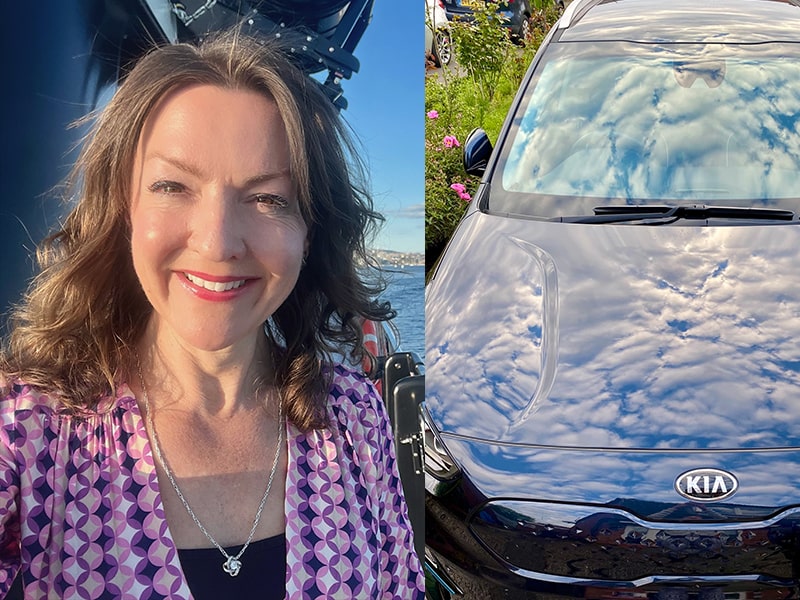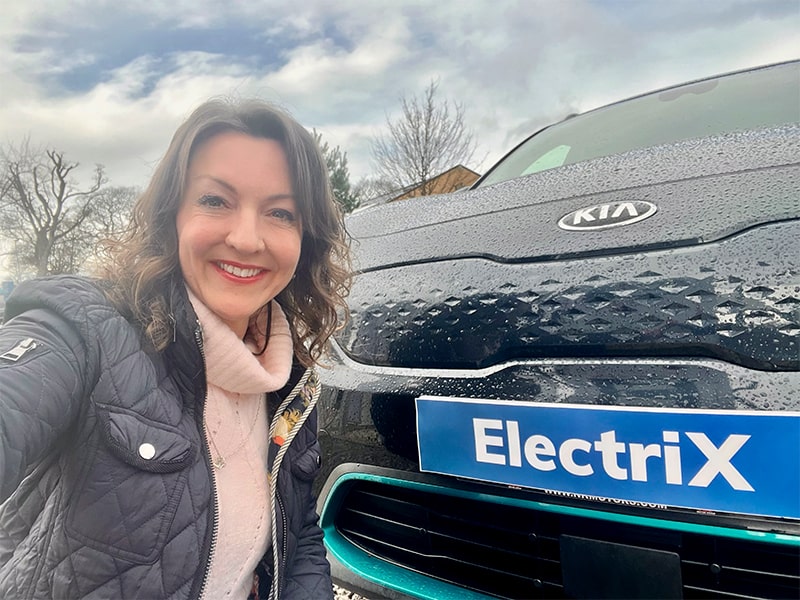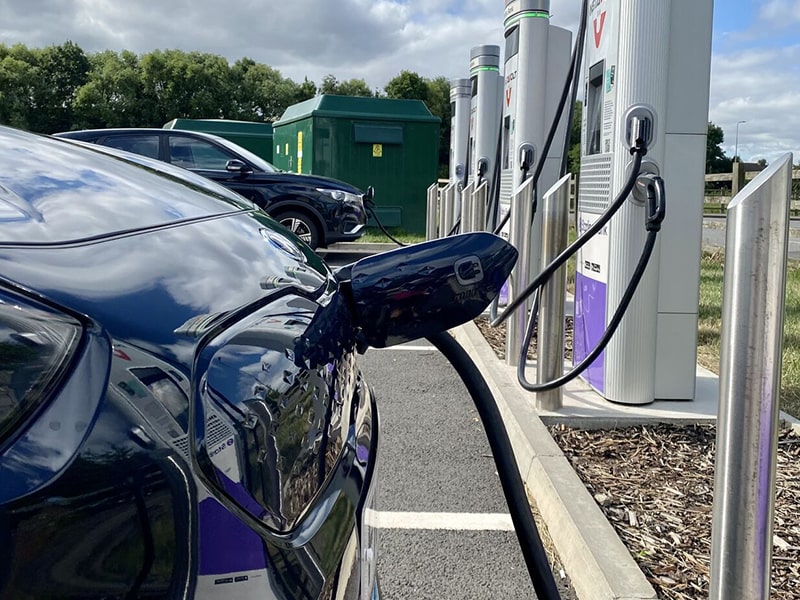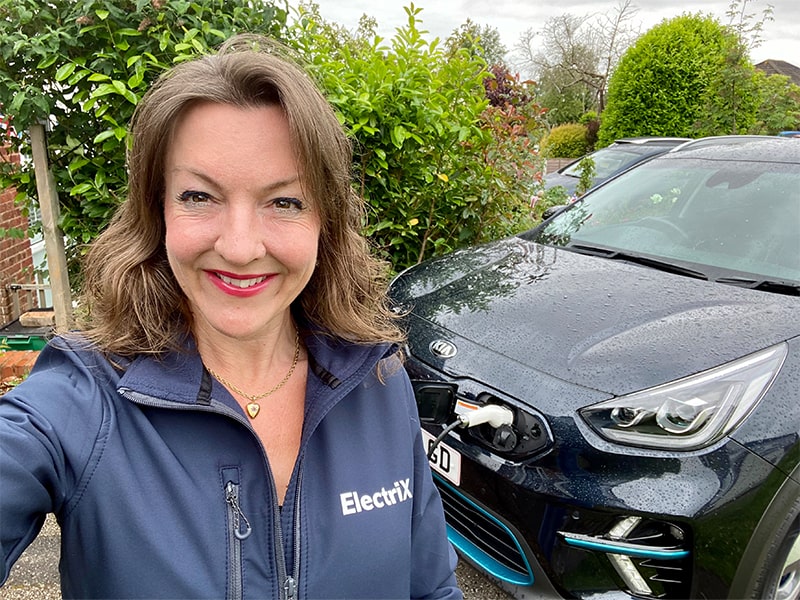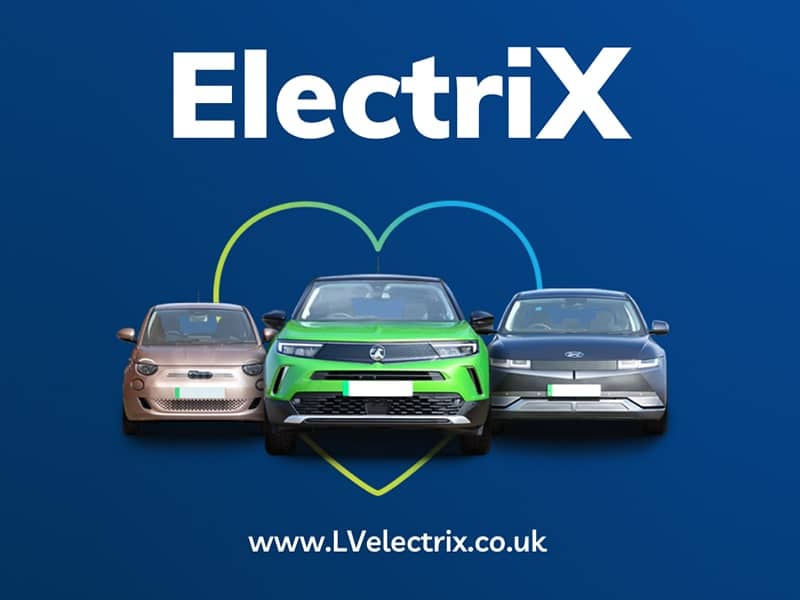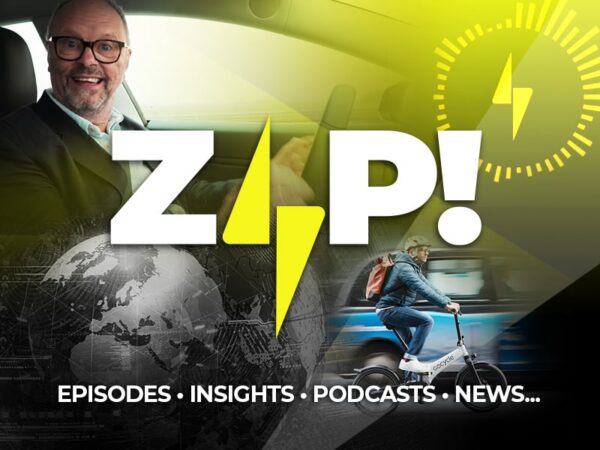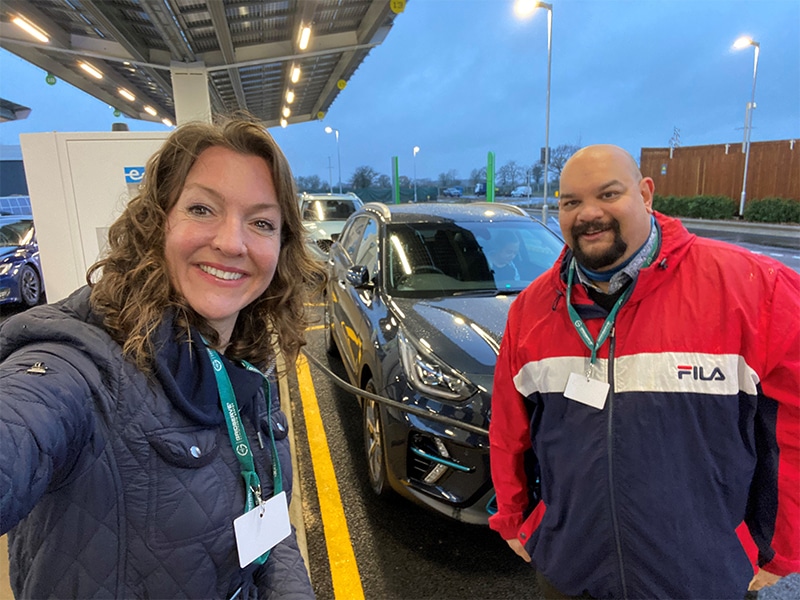
Gill Nowell and Warren Phillips (EVA England) at Gridserve’s electric forecourt in Braintree, Essex
I don’t get out much these days, but when I do, I like to leave home safe in the knowledge that my longer-than-usual car journey will be stress-free and smooth. The smooth part of the equation always works out for me (I drive an electric car after all), however the stress-free element can be a different story altogether.
Here’s an example. In December 2020 I was fortunate enough, in a rare window of opportunity between lockdowns, to attend the opening of Gridserve’s electric forecourt in Braintree, Essex. The event had been meticulously planned by the host Gridserve, in partnership with Fully Charged. I knew exactly where I needed to be, and at what time. Having led a rather secluded life for the preceding months, I was excited. My forward planning assured me that at 235 miles from home to my destination, I should have enough charge in my Kia e-Niro to do the trip without needing to charge. I was anticipating an eight hour round trip, traffic and comfort breaks permitting.
My first surprise was that at 100% charged, my car wasn’t showing as much range as normal. I literally hadn’t charged it up fully for many weeks, and so this dip in range (due to the cold weather) was unexpected. I was accustomed to seeing the range sitting at around 260 miles. At the start of my road trip to Gridserve, it was showing as 240 miles. This immediately put a different slant on my impending journey. I would need to charge en route.
Fast forward to three hours into my journey, with my range showing a healthy depletion, I needed to find a charger – and a rapid one at that, to give me the comfort of reaching my destination without concern. To cut a painful story short, I was let down three times by chargers at motorway services. Granted, one attempt was thwarted by user error – I used the wrong connector type (I know, I know – but I rarely charge outside of my own driveway and my trusty home smart charger!). The other two attempts failed due to the chargers not working. And so when I realised that I was charging nowhere fast, in fact my car was charging very slowly, and in a brain fog of increasing range anxiety, I gave up and drove away cautiously to find an alternative. And an alternative I did find – an impressive suite of shiny new monolithic chargers. I pulled up excitedly. But what next? These impressive beasts gave no indication of how I should use them and draw their wonderful energy.
In summary. I was late to the most exciting event of my lockdown 2020. My eight hour round trip took ten hours.
So, what can we do about the challenges of public charging infrastructure? And I am happy to acknowledge that much of it is fantastic, with a welcome increase and roll out by charging companies of many more chargepoints recently. In fact there are now 38,489 connectors across 22,216 devices in 14,156 locations in the UK (thank you for the stats Zap-Map!). As a Director of Electric Vehicle Association (EVA) England, I am passionate about making positive change for electric car drivers. EVA England offers a voice to EV drivers in England, and one key piece of work for us at the moment is encouraging EV drivers to respond to our survey on the Government Consultation on the consumer experience of public charging.
The proposals aim to ensure reliable chargepoints are easy to find and payments for charging are streamlined. It is also seeking views on other important charging-related issues, such as weatherproofing, signage, lighting and accessibility (it’s worth noting here that Motability and others are working on accessibility issues as well).
Charging infrastructure issues are not new, and other volunteer organisations such as Tesla Owners UK, one of the groups that EVA England is collaborating with to present the strongest voice possible into Government, has worked on similar issues in the past. Tesla Owners Group UK, for instance, has met with the Secretary of State for Transport, OLEV (before they became OZEV) and other parties to outline the concerns of their members and relay frustrations with key issues such as wayleaves and poor charging options for those living in flats/rented/terraced housing. They have created guides and templates for their members to petition their local councillors and MPs to improve charging infrastructure locally and are active in encouraging their members to complete similar Government feedback requests. EVA England itself will be inviting people to become ‘EV champions’ in due course, to help make positive change in their local communities, working with local authorities and others to improve charging in their localities.

Gill Nowell and Jordan Brompton at Gridserve
It’s vitally important for the acceleration of electric vehicle adoption that all potential and current electric vehicle owners come together to provide feedback to Government on key issues. This can either be by completing Government consultations directly or via an organisation like EVA England. The EVA England survey on public charging has been approved by the Office for Zero Emission Vehicles, takes less than ten minutes to fill in, and will enable EVA England to present a coordinated response and follow up to work towards the improvements that need to be made. It presents an opportunity to improve all kinds of charging, and particularly on street, motorway and destination charging, to level up unequal provision in different parts of England, and to consider issues particular to rural areas.
- EVA England survey on public charging
- You can also fill in the Government Consultation directly (note you can skip the complicated sections, additional notes here)
- EVA England website
- Tesla Owners UK website
- gill.nowell@evaengland.org.uk
About the author
Gill has over 20 years’ experience across sustainable energy, utility, and environmental technologies sectors, including eight years working on electric vehicle grid integration projects – most recently as DSO Lead at ElectraLink, the UK’s energy market data hub. A regular speaker and panellist on electric vehicles and data-driven transition to a low carbon, sustainable world, Gill has been a keen advocate for the uptake of electric vehicles since 2012. In February 2019, Gill founded EVclicks – a free online EV image library for use by schools, communities, projects and businesses in aid of the transition to zero emission transport (www.evclicks.co.uk). She is also an avid runner, and proud Mum to two young children. Gill is also a founding board member of Electric Vehicle Association (EVA) England, offering a voice to EV drivers in England.




